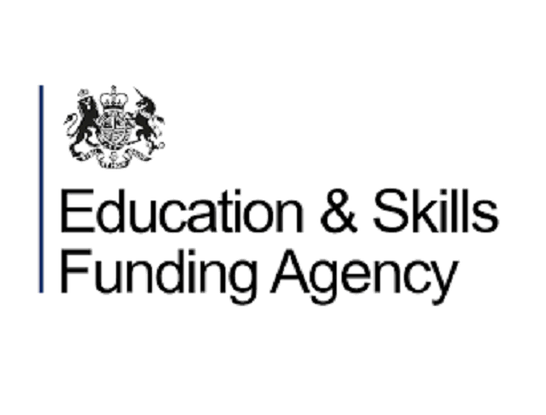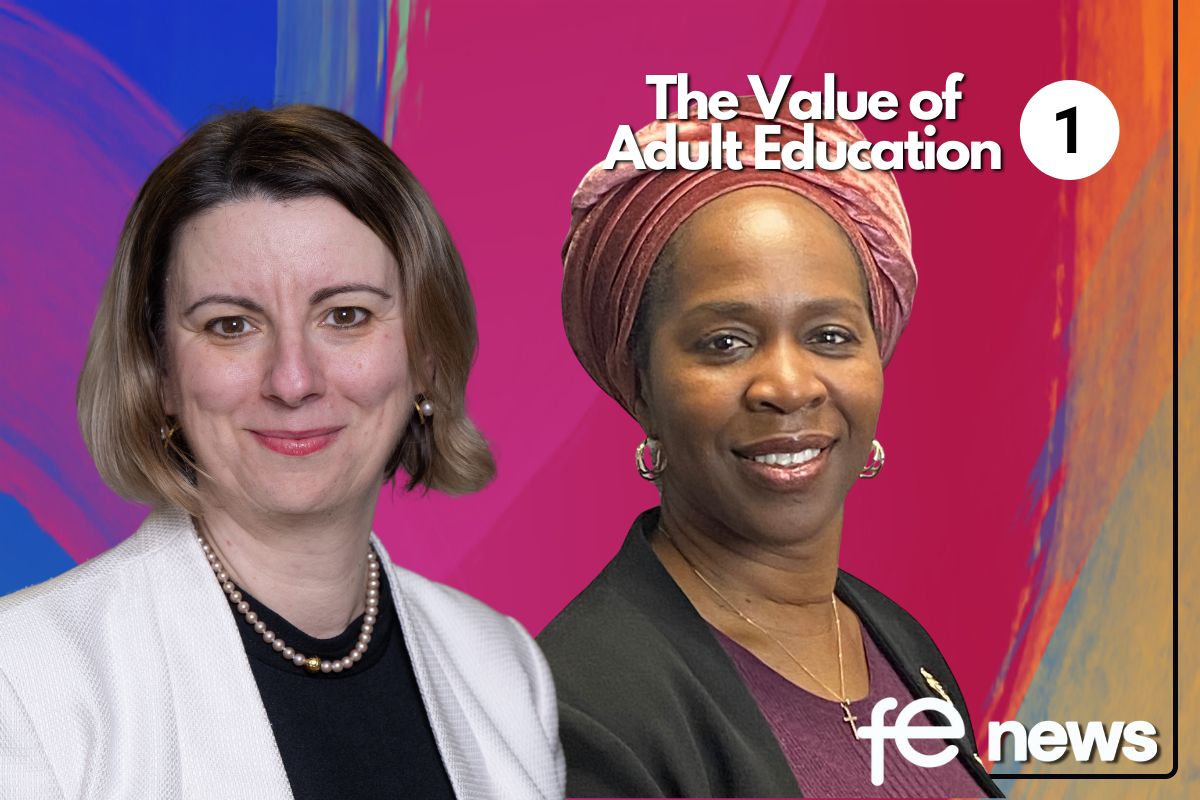Apprenticeship funding rules August 2019 to July 2020: Summary of changes

Clarification version of the 2019 to 2020 rules
The 2019 to 2020 funding rules apply to apprenticeships starting between 1 August 2019 and 31 July 2020.
We are issuing them now to give you time to prepare for any changes. We will publish the final version of these rules by 1 August 2019.
This document sets out amendments to the following documents:
- Apprenticeship funding rules and guidance for employers August 2018 to July 2019 version 2
- Apprenticeship funding rules for employer-providers August 2018 to July 2019 version 2
- Apprenticeship funding rules for training providers August 2018 to July 2019 version 2
The funding rules form part of the terms and conditions for the use of funds in an employer’s apprenticeship service account or for government-employer co-investment. You must read them in conjunction with your funding agreement with the Secretary of State for Education (acting through the Education and Skills Funding Agency (the ESFA), an executive agency of the Department for Education).
These rules will apply to all apprenticeship programmes starting on or after 1 August 2019. Unless otherwise stated, this includes both apprenticeship frameworks and standards.
We have identified the rules in the 2019 to 2020 funding rules clarification version that have changed from the 2018 to 2019 funding rules in the table below. The employer, employer-provider and provider paragraph numbers are denoted with the prefix E, EP or P respectively.
This document is intended as a summary and does not replace the funding rules themselves.
You should refer to the main funding rules document for the definitive rules.
Summary Note
The 2019 to 2020 funding rules are being published later than anticipated following version 2 of the 2018 to 2019 funding rules we published in Spring. Publishing at this time has allowed us to incorporate some new tools as well as update the rules to reflect user research. There are no major policy changes, however we have simplified some of sections of the apprenticeship funding rules with the aim of making them clearer.
The 2019 to 2020 funding rules have also been restructured for ease of understanding. This includes a restructure of the evidence pack and moving sections (e.g. recognition of prior learning and experience into the ‘What is an apprenticeship?’ section).
We are issuing these funding rules as a clarification version in PDF to give you the opportunity to provide feedback on how we can make them clearer or better understood.
Terminology
New Rule: We use this term to describe new rules that are developed in line with new policy, changes to existing policy, or changes to operational processes. The term describes new actions we expect a relevant individual or organisation to undertake in order to be compliant.
Clarification: We use this term to describe the rewording of existing rules for ease of understanding or for the inclusion of a rule that explicitly states, reinforces or emphasises the implicit actions that should already be taken in order to be compliant with the entirety of the funding
Restructure: We use this term to describe areas where we have moved rules for ease of understanding.
New Content: We are introducing new tools to help articulate the rules. We will use this term to confirm when we have added something
Summary of Changes
|
Section |
Change |
Paragraph number |
|
Title Page |
The title of the apprenticeship funding rules for training providers has been changed to apprenticeship funding rules for main providers. This more accurately reflects the relationship the Education and Skills Funding Agency has with providers and who we hold accountable for upholding the rules within this document. |
– |
|
Introduction and purpose of the document |
New Rule: Apprenticeship delivery must not take place without approval from an associated regulatory body where this is needed. The funding rules have been updated to reflect that some occupations require the training provider to be approved by a regulatory body before being able to deliver apprenticeships. |
P14 EP15 E11 |
|
Programme eligibility |
Restructure: The title of the section has been changed from “what is an apprenticeship” to “programme eligibility” to more accurately reflect the contents. |
– |
|
What is an apprenticeship |
Restructure: The sub-title “a job with training” has been changed to “what is an apprenticeship” to more accurately reflect the contents. The section has also been restructured to aid understanding to act upon user feedback. |
– |
|
Apprenticeship agreement between the employer and the apprentice |
Clarification: An incomplete apprenticeship agreement means an apprentice is not working under an approved English apprenticeship. The funding rules have been updated to confirm that where an apprenticeship agreement is incomplete the apprentice does not have a valid agreement and will not be eligible to receive funding. |
P26 EP26 E20 |
|
Off-the-job training |
Clarification: The off-the-job training section has been updated, using the terminology found in legislation, to further aid understanding. |
– |
|
New Rule: For new starts from 1st August the number of planned off-the-job training hours, for the full apprenticeship, must be documented on the individualised learner record. More information on how to do this can be found on the ILR page on GOV.UK |
P52 EP51 E45 |
|
Recognition of prior learning and experience |
Restructure: The sub-title of the section has been changed from “accounting for prior learning” to “recognition of prior learning and experience” to more accurately reflect the contents.
This section has also moved from the “paying for an apprenticeship” section to the “programme eligibility” section. |
– |
|
The commitment statement between the employer, apprentice and main provider |
Clarification: The commitment statement section has been updated to further aid understanding. This includes the use of the terms:
A rule has been removed from this section to reflect that it is no longer necessary to include confirmation of funding sources. |
– |
|
New Rule: A link to the commitment statement template has been added. It can be found on the off-the-job training section of GOV.UK. |
P66 EP67 E57 |
|
|
Who can be funded? |
New Rule: The rule on funding for concurrent programmes has been expanded and moved into “individuals who are not eligible for funding”. The rule has also been expanded to allow an individual to attract funding for an apprenticeship and some AEB funded provision concurrently. |
P79 EP80 E67 |
|
Eligible costs |
Clarification: The eligible costs section has been updated, expanding on the existing information, to further aid understanding. |
– |
|
Additional payments |
Clarification: The definition of a child in care has been updated to confirm that a child must have been in the care of a UK local authority. |
P108 EP101 E90 |
|
Support for English and maths training |
New content: A flowchart has been created and added into the funding rules to help you find out what training your apprentice should do. This flowchart supports the English and maths rules and should be used alongside them. |
– |
|
End-point assessments |
Clarification: The end-point assessments section has been updated to further aid understanding and to reflect information shared out with the funding rules. |
– |
|
Clarification: The employer-provider rules have been updated to show that providers can act as a proxy employer for redundant apprentices. |
EP139.3 |
|
Contracting and subcontracting |
New Rule: A statement of expectations is required when working with subcontractors as detailed in the new guidance published in May 2019. |
P169, 178, 179.8, 189 E130, 140, 144.8 |
|
New Rule: The subcontracting rules have been updated to reflect the new register of apprenticeship training provider conditions including the types of delivery subcontractors that can be used to deliver apprenticeships. |
P171, 192, 194 EP155, 169, 171 E141 |
|
|
The price of an apprenticeship |
Clarification: Rule amended to clarify that the ILR field should be left blank until the price of the end- point assessment has been confirmed. |
P202.2 EP183.1 |
|
Qualifying days for funding |
Clarification: A rule, to confirm that a learner should not be added to the ILR if they have withdrawn without completing one episode of learning, has been added to mirror requirements set out in the Provider Support Manual. |
P225 EP206 |
|
Change of circumstance |
Clarification: The change of circumstance section has been updated to reflect the position on unemployment, as detailed elsewhere in the funding rules. This section now confirm where an apprentice is no longer employed they cannot continue with their apprenticeship (with the exception of redundancy). |
P248 EP247 E219 |
|
Clarification: Following user research it was clear that more information around breaks in learning would be beneficial so we have clarified what a break in learning is and how to record a break in learning accurately. |
P249 EP248 E220 |
|
|
New content: A flowchart has been created and added into the funding rules to help you find out what to do if your apprentice wants to take a break in learning. This flowchart supports the rules on break in learning and should be used alongside them. |
– |
|
|
Clarification: Information has been added and updated throughout the change in circumstance section to clarify the action taken, within the apprenticeship service, when a specific change of circumstance occurs. |
– |
|
|
Evidence Pack |
Restructure and Clarification: The rules have been updated to give more information into the evidence that must be held within the evidence pack. The section has also been restructured to reflect the new structure of the funding rules. |
– |
|
Glossary |
New Content: New terms have been added to the glossary. |
– |











Responses